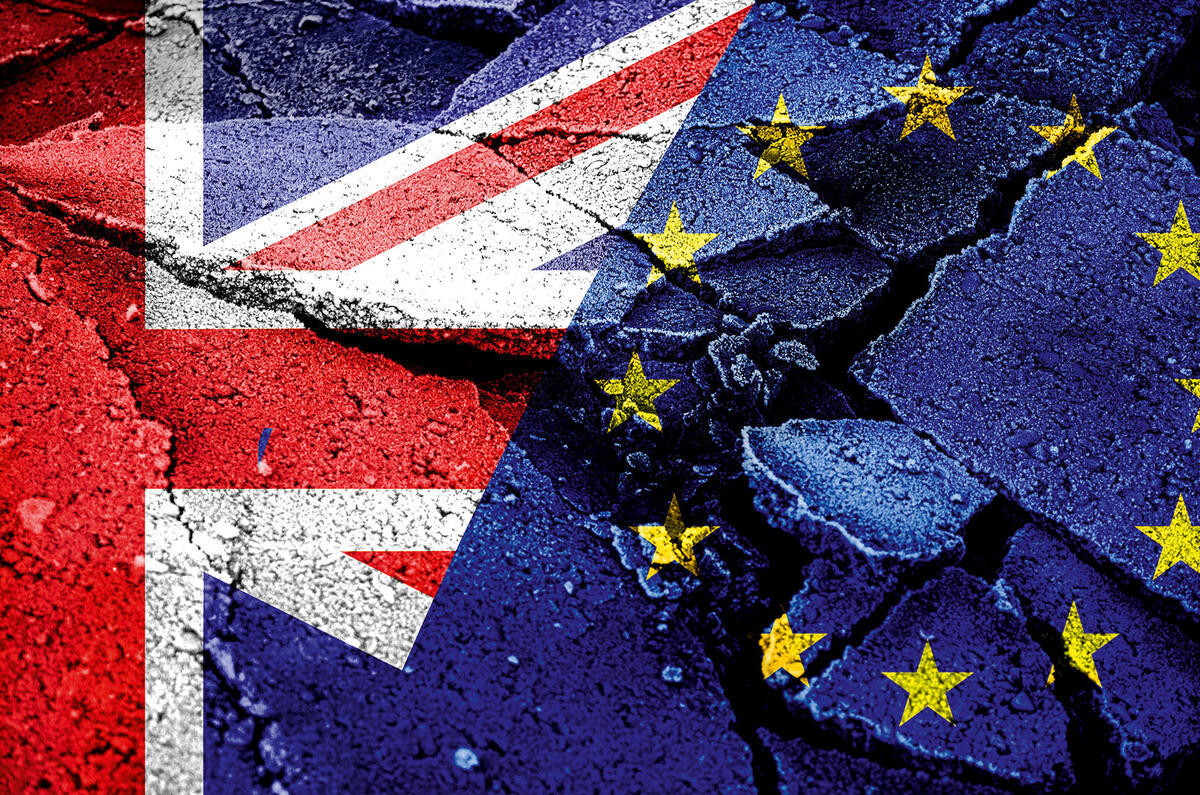The automotive industry will be dramatically affected by Brexit if there are any major changes to the way it currently works across Europe and the UK, according to the European automotive body, the European Automobile Manufacturer’s Association (ACEA) and CLEPA, the European Association of Automotive Suppliers.
Speaking ahead of this weekend’s EU-Brexit Summit, ACEA Secretary General Erik Jonnaert noted that today, the industry in the UK and Europe is closely integrated “from the economic, regulatory and technical points of view”. He said: “Any changes to this level of integration will most certainly have an adverse impact on automobile manufacturers with operations in the EU or the UK, as well as on the European economy in general.”
It is the first time the European bodies have spoken out on the matter, and echoes the views of the British Society of Motor Manufacturers and Traders, according to its chief executive Mike Hawes. He said: "We're keen to stress that the UK automotive industry is part of the European industry. These European organisations clearly reflect their members' interest. The fact that they are aligned with us is an important message."
According to the ACEA and CLEPA, the impact is most likely to be felt in areas incuding tariffs, customs procedures, the regulatory framework and access to labour. Tariffs, for instance, could amount to 10% for passenger cars, 10 to 22% for commercial vehicles, and 3 to 4% on average for parts and components.
Sigrid de Vries, Secretary General of CLEPA, echoed Jonnaert’s views, saying: “The EU Single Market represents a fundamental driver of global competitiveness. Vehicle manufacturers and component suppliers are entangled in a highly integrated manufacturing network spanning Europe.
“Tariff- and burden-free market access, as well as a stable and predictable regulatory framework, are crucial instruments to sustain the supplier industry’s technology leadership and secure investments and jobs.”
The SMMT's Hawes added: "If we have to impose tariffs, it would be felt on both sides of the channel, but in slightly different ways. There will be an increase in sticker price. And if the price of vehicles go up, it would effect export volumes coming into the UK. UK consumers would also be paying more. And for those who export from the UK, they will have to swallow that 10% because you can't push it on to European consumers." He added that the "worse-case scenario" would be World Trade Organisation tariffs. "Hopefully we don't have to revert to WO tariffs."
When asked whether manufacturers might consider opening plants in the UK if tariffs were imposed - PSA boss Carlos Tavares has already referenced such a move in relation to the purchase of Opel - Hawes commented: "The industry is very agile and adaptable and will always look at mitigating costs. If there are borders going up, that does compound the need for local suppliers to get around those borders.
"There are so many factors involved in supply selection, including cost, quality and innovation. But if this [tariffs imposed by Brexit] encouraged people to invest in UK that would be a positive."
The automotive industry is a major point of negotiation in Brexit discussions. Today, the EU is the UK’s biggest trade partner. More than half of all the cars and 90% of all the commercial vehicles built in the UK last year were bought by customers in Europe.
In addition, the EU represents more than 80% of the UK’s motor vehicle import volume, and is worth €42 billion. Seven out of every 10 new cars sold in the UK come from EU plants.
Overall, the automotive industry in the UK and Europe represents 6.5% of the EU’s Gross Domestic Product (GDP) and provides employment for 12.2million people.
UK car manufacturing hits 17-year high thanks to growing exports
Brexit: EU single market is ‘critical’ to UK automotive sector
Brexit: Bentley could shift production to Europe in ‘worst case scenario’







Join the debate
Add your comment
Always remember one thing
Always remember one thing. We won (by 2% & 20% didn't vote)
In the same way and the same proportion as the Mango Mussolini did in the USA. That's working well isn't it?
Why do the Brexiteers such as Straff refuse to discuss any possible ramifications or strategies or even potential problems with it?
What are they so insecure about? Surely they want the best result for their country and not for everyone to be worse off?
I love seeing this "We won. Get over it"
Life after EU via Brexit
Few people know that it is actually EU policy to have a free trade agreement with major trading partners (Check its website). That could take a while, but we could fall back on Norway-like membership of the EEA (European Economic Area) with free trade and zero tariffs or possibly a 'WTO waiver' - a special dispensation for up to 2 years' temporary arrangements.
I bet Ford will regret loss of Uk manufacture